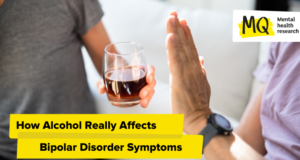
Personality disorders are mental health conditions that affect the way individuals perceive the world, interact with others, and manage their emotions. These disorders often develop in adolescence or early adulthood and can lead to long-term challenges in personal and professional relationships. Recognizing whether you might have a personality disorder is the first step toward seeking appropriate help and improving your quality of life. This blog will guide you through some common signs of personality disorders, how they are diagnosed, and when you should seek professional advice.
What Are Personality Disorders?
A personality disorder is characterized by unhealthy and inflexible patterns of thinking, feeling, and behaving. These patterns can cause significant distress and difficulties in social, work, or school situations. Personality disorders are typically grouped into three broad categories or “clusters” based on similar symptoms:
- Cluster A (Odd, eccentric behaviors): This includes paranoid, schizoid, and schizotypal personality disorders.
- Cluster B (Dramatic, emotional, or erratic behaviors): This cluster includes borderline, narcissistic, histrionic, and antisocial personality disorders.
- Cluster C (Anxious or fearful behaviors): This includes avoidant, dependent, and obsessive-compulsive personality disorders.
Each type of personality disorder presents a unique set of behaviors and symptoms, but there are some general signs to look out for if you suspect you might have a personality disorder.
Signs and Symptoms of Personality Disorders
While the specific symptoms of a personality disorder depend on the type, there are some common warning signs across all types that may indicate the presence of a disorder:
1. Chronic Difficulties in Relationships
People with personality disorders often struggle to form and maintain healthy relationships. You might find that your interactions with others are fraught with conflict, misunderstanding, or emotional distance. For instance, individuals with borderline personality disorder (BPD) often experience intense and unstable relationships, characterized by extreme shifts between idealizing and devaluing others. On the other hand, those with avoidant personality disorder may avoid close relationships out of fear of criticism or rejection(Children’s Society)(Intergenerational Foundation).
2. Difficulty Regulating Emotions
Many personality disorders are marked by difficulties in regulating emotions. You might feel that your emotional responses are more intense or prolonged than the situation warrants. For example, individuals with borderline personality disorder often have heightened emotional sensitivity, leading to rapid mood swings, anger outbursts, or feelings of emptiness. Similarly, people with histrionic personality disorder may exhibit overly dramatic or attention-seeking behaviors in an attempt to get emotional validation(Time Out Worldwide).
3. Distorted Thinking Patterns
A hallmark of personality disorders is unhealthy or rigid thinking patterns that deviate from cultural norms. These thoughts can influence how you perceive yourself and others. For instance, if you have paranoid personality disorder, you may constantly feel suspicious or believe that others are trying to harm or deceive you. Those with narcissistic personality disorder often have an inflated sense of self-importance and a constant need for admiration(Intergenerational Foundation)(The Independent).
4. Impulsive or Risky Behaviors
If you often engage in impulsive or risky behaviors without considering the consequences, this could be a sign of a personality disorder. People with borderline personality disorder, for example, might engage in reckless spending, substance abuse, or risky sexual behavior. Similarly, individuals with antisocial personality disorder may engage in criminal activity, deceitful behaviors, or aggressive actions without feeling remorse(Children’s Society).
5. Social Isolation or Detachment
Individuals with certain personality disorders may feel uncomfortable in social situations or choose to isolate themselves. If you avoid social interactions or struggle to connect with others emotionally, this could be a sign of schizoid or schizotypal personality disorder. Schizoid individuals often prefer solitary activities and feel indifferent toward forming close relationships, while those with schizotypal personality disorder may experience discomfort in social settings due to their eccentric behaviors or odd beliefs(Intergenerational Foundation).
6. Intense Fear of Abandonment
An intense fear of abandonment is a common symptom of borderline personality disorder. You may constantly worry about being left by others, even in the absence of any real threat. This fear often leads to desperate efforts to avoid abandonment, which can manifest in behaviors such as clinging to others, lashing out in anger, or engaging in self-destructive actions( Time Out Worldwide).
Personality Disorders: Diagnosis and Professional Assessment
While it’s important to be aware of the symptoms, diagnosing a personality disorder requires a thorough evaluation by a mental health professional, such as a psychiatrist or psychologist. Personality disorders are not typically self-diagnosed because the symptoms often overlap with other mental health conditions like anxiety or depression. Here’s what to expect during a professional assessment:
1. Comprehensive Interview
A mental health professional will conduct a comprehensive interview to learn about your history, thoughts, feelings, and behaviors. They may ask about your relationships, work life, and past experiences to understand how your symptoms have affected your functioning over time.
2. Psychological Testing
In some cases, the professional may use standardized psychological tests or questionnaires to assess the severity and patterns of your symptoms. These tools help in identifying specific traits or behaviors that align with certain personality disorders.
3. Ruling Out Other Conditions
Mental health professionals will also rule out other mental health conditions that might explain your symptoms, such as anxiety, depression, or post-traumatic stress disorder (PTSD). It’s important to identify whether the symptoms are primarily related to a personality disorder or part of another condition.
4. Evaluation of Long-Term Patterns
Personality disorders are generally diagnosed only if the symptoms have been present for a long time and affect multiple areas of life. The professional will assess whether your symptoms are pervasive and enduring, rather than episodic or situational(Intergenerational Foundation).
When to Seek Help
If you recognize some of the signs mentioned above and suspect that you might have a personality disorder, it’s important to seek professional help. Living with an undiagnosed or untreated personality disorder can lead to significant distress and challenges in everyday life, but treatment options are available.
- Talk to a Mental Health Professional: A licensed psychiatrist, psychologist, or therapist can assess your symptoms and help you understand whether a personality disorder is present. They can also offer treatment options, including therapy and, in some cases, medication.
- Consider Therapy: Psychotherapy, particularly cognitive-behavioral therapy (CBT) and dialectical behavior therapy (DBT), has been shown to be effective for many people with personality disorders. These therapies focus on helping individuals change unhealthy thought patterns and behaviors, improve emotional regulation, and develop better coping skills (The Independent).
- Join Support Groups: Connecting with others who face similar challenges can provide emotional support and encouragement. Support groups offer a safe space to share experiences and coping strategies with others who understand what you’re going through.
Conclusion
Recognizing the signs of a personality disorder in yourself or a loved one can be challenging, as the symptoms are often complex and long-standing. However, being aware of key warning signs like relationship difficulties, emotional dysregulation, distorted thinking, and impulsive behaviors can prompt you to seek the right help.
If you think you may have a personality disorder, consulting with a mental health professional is the best course of action. A proper diagnosis and personalized treatment plan can lead to significant improvements in your wellbeing and help you navigate life’s challenges more effectively. Remember, with the right support and treatment, it is possible to live a fulfilling and balanced life despite having a personality disorder.




